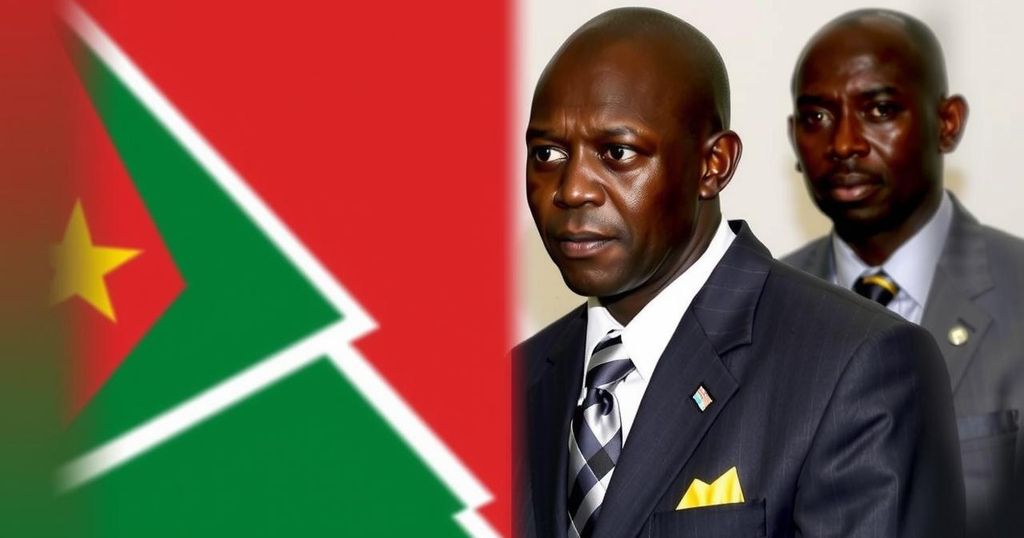After a four-month pause, peace talks in South Sudan have resumed in Kenya, involving government and opposition factions. The discussions aim to address unresolved issues from the 2018 peace agreement amid economic challenges. Key leaders expressed the urgency of moving forward without renegotiating previous accords to restore stability in the country.
The peace talks aimed at resolving the ongoing conflict in South Sudan resumed on Wednesday in Kenya after a four-month hiatus. These discussions involve the South Sudanese government and opposition factions not included in the 2018 peace agreement, which concluded a devastating five-year civil war that claimed over 400,000 lives. Previously dubbed Tumaini, meaning hope in Swahili, the negotiations had initially commenced in May with a commitment declaration being signed. However, progress stalled when President Salva Kiir dismissed the earlier government delegation, appointing a new team that faced obstacles in traveling to the Kenyan capital.
Despite these challenges, including a delay in setting a date for upcoming elections and an ongoing economic crisis that has left civil servants without pay for over a year, the mediators of the talks remain hopeful. With oil exports suffering due to a damaged pipeline in Sudan amidst its civil conflict, the South Sudanese economy continues to struggle. The parties have opined against newly enacted legislation permitting detentions without arrest warrants, which raises human rights concerns. On Wednesday, chief mediator Lazarus Sumbeiyo called on all parties to finalize discussions on unresolved matters, as the urgency to reach an agreement mounts.
Pagan Amum, leader of the South Sudan Opposition Movement Alliance, emphasized the necessity for the new government delegation to adhere to previously established agreements, stating, “This is not a time to renegotiate what we have already agreed upon — it is important to remember that this is probably the last chance to rescue our country from the total disintegration and collapse into chaos and disorder as the fate of South Sudan now is in our hands.” Kuol Manyang Juuk from the government urged all parties to focus on building upon past achievements rather than revisiting previous negotiations, demonstrating a collective intent to restore stability to the war-torn nation.
The situation in South Sudan remains precarious, characterized by a protracted conflict stemming from political power struggles and ethnic tensions. Following its independence in 2011, the country descended into civil war in 2013, which resulted in significant loss of life and mass displacement. The 2018 peace agreement aimed to unify competing factions but has failed to achieve full implementation. With economic conditions deteriorating and essential services disrupted, the resumption of peace talks represents a critical juncture for the nation’s future. The recent changes in the government delegation and the urgent call for adherence to prior agreements reflect the complexities involved in navigating peace processes in regions afflicted by ongoing instability.
In conclusion, the resumption of peace talks in South Sudan signifies a vital opportunity to address longstanding conflicts and strive towards lasting resolution. With key figures urging commitment to earlier agreements and a focus on human rights, there is a collective acknowledgment of the dire circumstances facing the nation. The path forward demands cooperation, trust, and a resolute commitment from all parties involved to navigate the complexities of South Sudan’s peace journey.
Original Source: apnews.com






